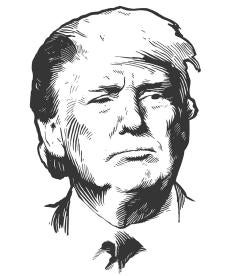On the campaign trail, President Trump vowed to “dismantle” Dodd-Frank. Dodd-Frank was enacted in the wake of the 2008 financial crisis to curtail risky investment activities and stop financial fraud through increased oversight and regulation of the banking and securities industries. Among other things, it amended the Sarbanes-Oxley Act, Securities Exchange Act, and Commodity Exchange Act to include monetary incentives for individuals to blow the whistle on suspected financial fraud and stronger protections for whistleblowers against retaliation by their employers. President Trump has criticized Dodd-Frank, arguing that it is overbroad and inhibits economic growth. Now that he is in office, President Trump has the statute squarely in his crosshairs, and he is poised to impact its whistleblower protections on the legislative, administrative, and judicial fronts.
From a legislative standpoint, President Trump has wasted no time in seeking to roll back Dodd-Frank’s statutory framework. Only two weeks after his inauguration, he issued an EO titled “Core Principles for Regulating the United States Financial System,” which directs the Treasury Secretary to consult with the heads of financial agencies, including the Commodity Futures Trading Commission and the Securities and Exchange Commission (“SEC”), to find ways to conform U.S. financial regulations, including Dodd-Frank, to the Trump administration’s “Core Principles.” These “Core Principles” (detailed in the second article of this Take 5) are broad-sweeping and include, among other things, requiring “more rigorous regulatory impact analysis” for new laws and “mak[ing] regulation efficient, effective, and appropriately tailored.” While the precise scope of these principles is undefined (perhaps intentionally so), they appear to demonstrate a clear first step toward deregulation in the financial sector and may be a shot across the bow signaling the President’s intent to scale back—or at least halt any expansion of—Dodd-Frank, including its whistleblower protections.
Additionally, President Trump is well positioned to substantially affect the SEC’s administrative enforcement of Dodd-Frank’s whistleblower laws. Dodd-Frank created the SEC Office of the Whistleblower (“OWB”) to enforce its comprehensive whistleblower program. As reported in the 2016 Annual Report to Congress on the Dodd-Frank Whistleblower Program, since the OWB was established, the SEC has (i) awarded more than $100 million in bounty awards to whistleblowers who provided information leading to successful enforcement actions, (ii) independently sued employers for retaliating against employees for reporting alleged securities violations, and (iii) made it a top priority to find and prosecute employers that use confidentiality, severance, and other agreements that impede their employees from communicating with the SEC.
The SEC’s enforcement agenda could change significantly, however, under the Trump administration. Specifically, in 2017, President Trump will have the opportunity to appoint four out of the five SEC Commissioners (three seats are now vacant, and another will become vacant in June). He has nominated Jay Clayton—a corporate attorney who has spent his career representing financial services firms in business transactions and regulatory disputes—to fill one of those vacancies and serve as SEC Chair. New SEC leadership may result in the potential replacement of the sitting OWB Chief and alter the OWB’s current enforcement strategies. Thus, through his administrative appointments, President Trump may attempt to temper the SEC’s aggressiveness and focus when it comes to enforcement of Dodd-Frank’s whistleblower protections to more closely reflect his vision for less onerous regulation of the financial sector.
The President is also uniquely situated to influence the application of Dodd-Frank in the courtroom. Indeed, President Trump has inherited more than 100 federal court vacancies that he must fill, including one on the U.S. Supreme Court, giving him the opportunity to shape how Dodd-Frank’s whistleblower laws will be interpreted and applied by federal judges across the country. One of the most critical issues that hangs in the balance is whether an employee who reports an alleged securities violation only to his or her employer, and not to the SEC, is protected by Dodd-Frank’s anti-whistleblower retaliation provision. At present, there is a circuit court split on this issue. In 2013, the U.S. Court of Appeals for the Fifth Circuit held in Asadi v. G.E. Energy United States, LLC, that an employee who only reports a suspected violation internally is not a protected whistleblower for the purposes of Dodd-Frank’s anti-relation provision. In 2015, however, the Second Circuit Court of Appeals reached the opposite conclusion in Berman v. Neo@Ogilvy LLC. The question has since come before the Sixth Circuit Court of Appeals (which declined to rule on it) and is currently pending before the Courts of Appeals for the Ninth and Third Circuits, and it will almost certainly end up before the U.S. Supreme Court for resolution. Accordingly, President Trump’s federal judicial appointments—particularly his nomination of Judge Neil Gorsuch to the U.S. Supreme Court—may play a pivotal role in establishing exactly who is protected under Dodd-Frank’s proscription against whistleblower retaliation.
Ultimately, it is unlikely that President Trump will actually be in a position to completely “dismantle” Dodd-Frank. Yet, there is no question that he has at his disposal the power to greatly impact the statute at the legislative, administrative, and judicial levels, and there is little doubt that change is on the horizon.



 />i
/>i
